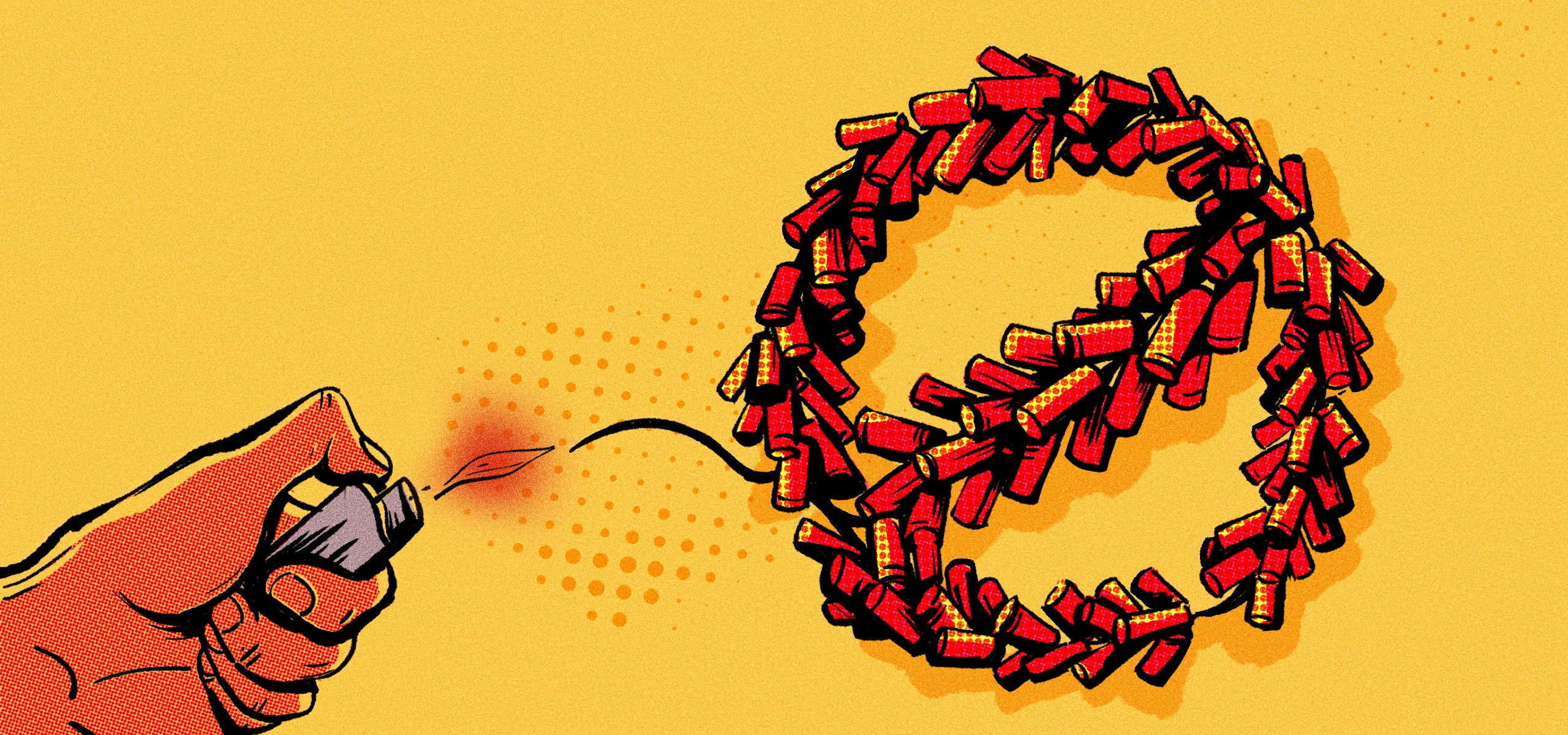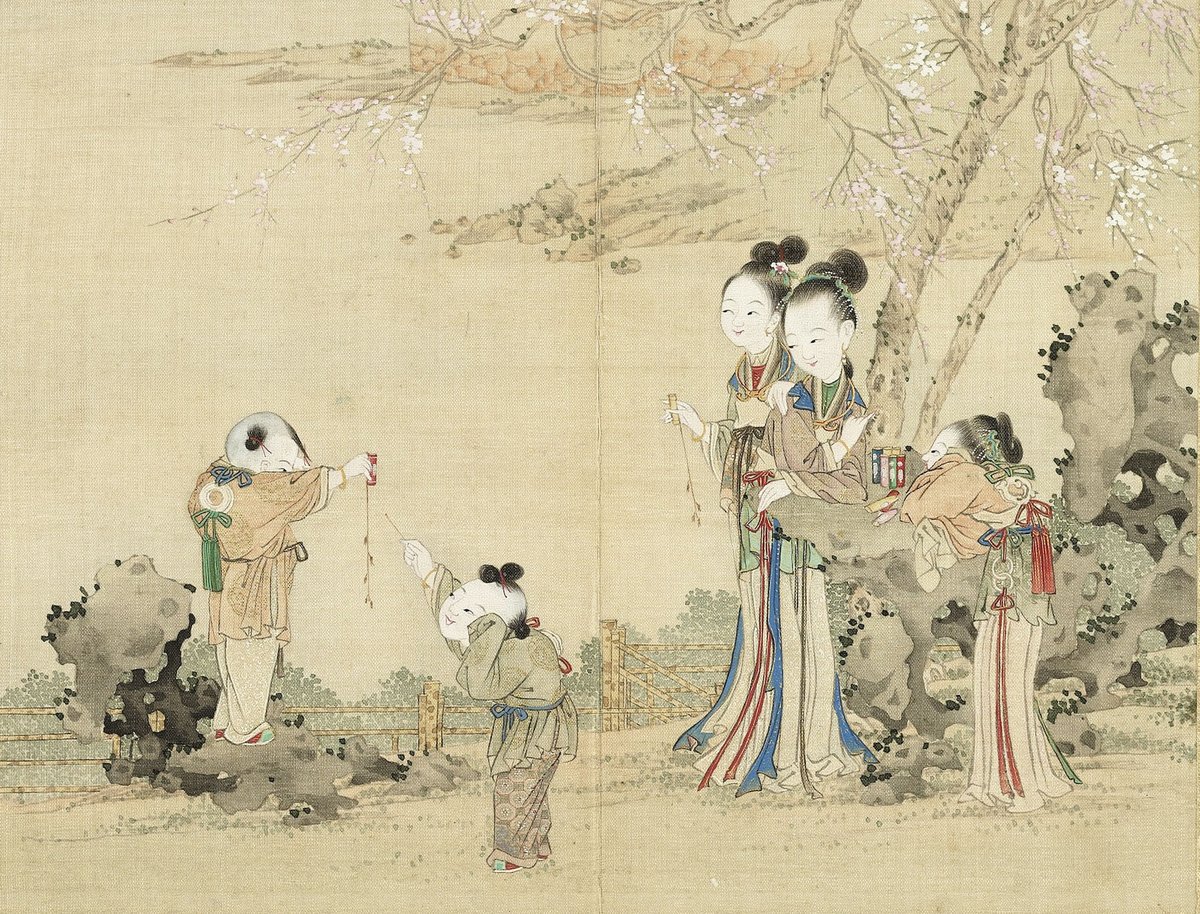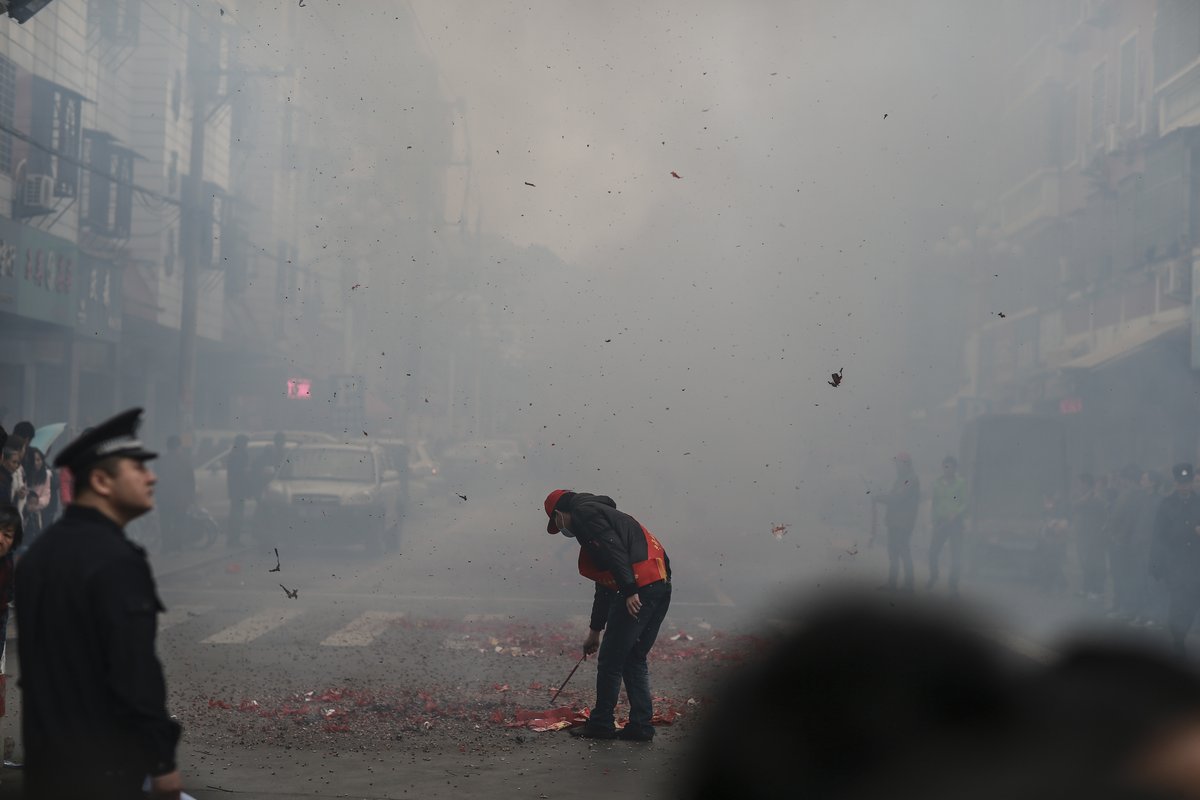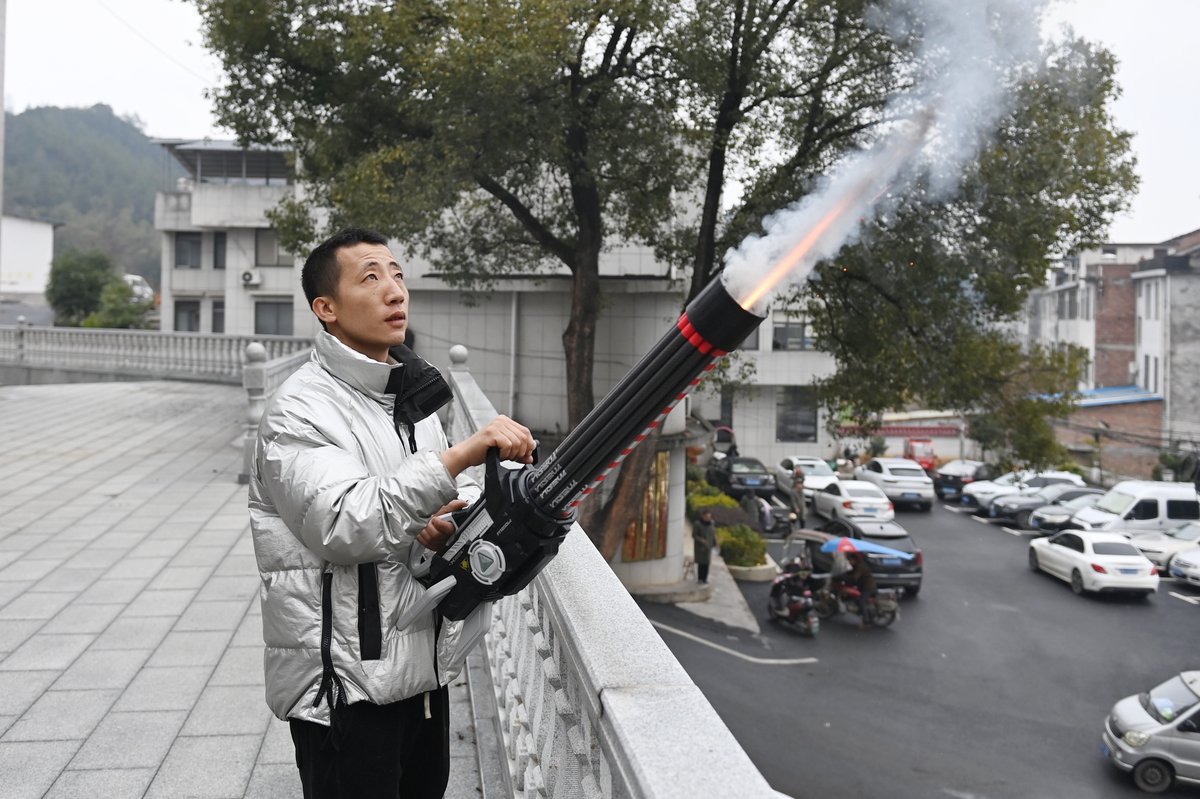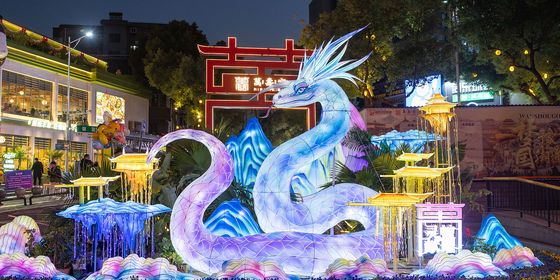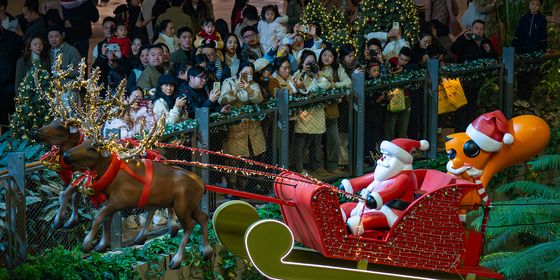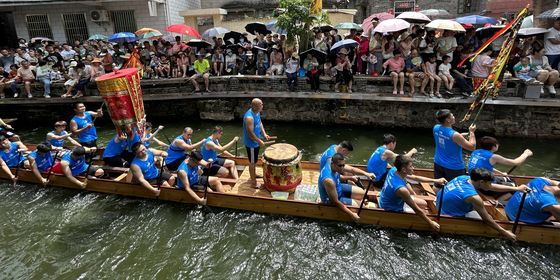Why does the land that invented fireworks and firecrackers prohibit them in so many places?
Mr. Huo remembers when the Lunar New Year in Beijing felt like a real festival. In the 1980s and ’90s, Huo, now 56, would set off firecrackers “precisely at midnight on Lunar New Year’s Eve and before lunch on Lunar New Year’s Day,” he tells TWOC. The streets were filled with the bang of pyrotechnics and people out on the streets celebrating. Now, “Without the sound of firecrackers, it feels like something’s missing…like the lively spirit of celebration is gone.”
Though firecrackers were invented in China 2,000 years ago, the country’s relationship with these traditional symbols of festivities has become complicated in recent decades. Unlike metropolises such as London or Sydney, renowned for their spectacular fireworks displays adorning iconic landmarks during New Year’s festivities, many urban centers on the Chinese mainland, including Beijing, have for years prohibited fireworks to protect air quality and public safety. These days there are no firework displays set off from Beijing’s Forbidden City, or Shanghai’s Oriental Pearl Tower, for example.
That could be changing, however, after a report in late December by China’s Legislative Affairs Commission stated that laws related to air pollution and firework safety, do not explicitly prohibit the use and sale of fireworks that meet quality standards. The report also authorized local governments to set specific times and places where fireworks could be restricted or banned. Many online and in the media interpreted this as meaning regulations would relax.
Ahead of the Lunar New Year celebrations in February, fireworks fans like Mr. Huo rejoiced. A hashtag related to the news in December surged to the top of Weibo’s trending topics. But the news also generated intense debate with some worrying about the environmental impact of fireworks and the safety perils of pyrotechnic activities, while others champion the cultural significance of fireworks in traditional Chinese festivals, claiming they are tangible manifestations of “Lunar New Year flavor (年味).”
Firecrackers, invented in China around 2,000 years ago, and fireworks, which came later in the Sui dynasty (618 – 907), are deeply rooted in Chinese folklore and tradition. They were originally used to drive away Nian, a mythical beast believed to attack people and livestock on Lunar New Year’s Eve. Fireworks have since evolved into a staple part of celebrating not just the Lunar New Year, but also other significant events and festivities, including weddings and spiritual events.
But the dangers of these loud explosive devices have led to a centuries-long tension between cultural preservation and modern governance. For example, during the reign of the Yongle Emperor in the 15th century, fireworks caused several devastating fires in the Forbidden City. In response, they were banned from the imperial palace.
Later, in the early years of the Republic of China in the 20th century, the fractured nation beset by warlordism and in-fighting restricted fireworks in some areas allegedly because the pop of the pyrotechnics might be mistaken for gunfire. At various points in the first decades of communist rule in China after 1949, old festivals and traditions like setting off firecrackers were discouraged, while fireworks production also fell.
But, in the 1980s and ’90s, as market reforms brought a surging economy and the government promoted Chinese traditions once again, demand for explosives to light up celebrations grew—as did accidents. According to the state-owned Beijing Daily, during the Spring Festival of 1986, fireworks and firecrackers in the capital caused injuries to 446 people, including two individuals who had to have their eyes removed. On the first hour of Lunar New Year’s Day in 1987, Beijing reported a fire alarm every 36 seconds on average, with firefighting vehicles unable to return to their stations as they continuously moved from one fire scene to the next.
Lawmakers became concerned. By the early 1990s, a wave of prohibitions was sweeping the nation, with 282 cities including Shanghai, Wuhan, and Xi’an issuing decrees prohibiting the use of fireworks and firecrackers. Enforcement, however, remained uneven.
Mr. Zheng, a 72-year-old from central Shanghai, remembers fireworks around Lunar New Year in the 1990s, despite some restrictions. “In narrow alleyways, fireworks and firecrackers were set off continuously,” he tells TWOC. ”Every time I heard the sound of firecrackers during the Lunar New Year, I felt an immense sense of comfort. To me, those sounds were like New Year’s bells, signaling the end of the old year and the beginning of the new. They reminded me that it was time to work hard and strive for my family again. The firecrackers symbolized us Chinese people’s aspirations of rising higher and ushering in prosperity.”
Regulation continued to tighten, though public opinion vacillated between support for controls that limited air pollution and injuries, and pining for the sounds and sights of traditional celebrations. In 2005, a survey of 60,000 residents by the Beijing Municipal People’s Congress showed 70 percent of respondents favored relaxing firework rules in the city. That year, the city lifted a total ban in favor of more selective restrictions on fireworks around national institutions, cultural heritage sites, hospitals, schools, and nursing homes. This has expanded since, with fireworks currently banned within Beijing’s fifth ring road which runs more than 25 kilometers outside the city center. In Shanghai and Guangzhou, too, pyrotechnics are forbidden in the city centers.
Yet as air pollution in many of China’s cities worsened alarmingly in the 2000s, many supported more restrictions on fireworks to reduce the harmful particulates and gases they release into the air.
Some have also been put off by the deafening din of firecrackers. Measurements taken from a residential area of Xi’an, Shaanxi province, during Lunar New Year’s Eve in 2012 showed both indoor and outdoor noise levels significantly exceeded the 45 decibels limit for nighttime noise outlined in China’s Environmental Quality Standards for Noise.
Lynn Zhang, a resident of Jiading district in Shanghai, tells TWOC that fireworks traumatize her five-year-old Corgi. “The moment there’s a loud crackle of firecrackers outside, my dog curls up in a corner, trembling. It breaks my heart,” Lynn says. “Walking the dog becomes perilous. It panics and dashes erratically whenever firecrackers erupt suddenly on its path. I wish people would refrain from setting off fireworks, but I feel helpless.” Others complain simply of the disturbance to their sleep patterns.
Bans continued to proliferate up to this year. In 2017, 444 cities across China prohibited the use of fireworks and firecrackers. By 2018, 803 county-level or above cities nationwide had banned fireworks and firecrackers.
In smaller cities and the countryside, however, rules and enforcement have remained patchy. Some revelers still risk fines of 100 to 500 yuan, or even several days’ administrative detention, by setting off fireworks in forbidden areas. In recent years, there are still a few sparse bangs reverberating around Beijing’s city center on Lunar New Year’s Eve.
Accidents also haven’t stopped. In May 2023, confiscated fireworks at a police station in Dacheng county, Hebei province, exploded, killing at least four police officers, and injuring five others. According to a report by Southern Weekend, Dacheng had banned fireworks in 2021 but the restrictions were frequently defied. On January 19 this year, a homemade firecracker explosion in Shanyang district, Henan province, caused severe injuries to three individuals, despite a ban on the sale and use of fireworks and firecrackers there.
On social media platforms, fireworks content is often preceded by a safety notice urging users to purchase safe fireworks and use pyrotechnics responsibly. Yet there are still videos online of people using fireworks in reckless ways, such as letting off firecrackers on frozen lakes, or holding lit fireworks while sat on top of a car.
There are also instances of overreaction that have fueled online calls for more relaxed restrictions on where fireworks can be used, but stricter rules and enforcement for the production of safe products. On January 14, at a comic exhibition in Hangzhou, Zhejiang province, a staff member at the exhibition center doused a girl with a fire extinguisher for holding a lit sparkler. A woman surnamed Zhao who witnessed the incident told Jimu News that the man acted without warning and labeled the incident close to assault.
Nie Youlun, associate professor at the Law School of East China Normal University, believes restrictions must strike a balance between safety and the rights of residents. “The core issue remains the extent of restrictions—whether more delicate decisions can be made to balance these two values, rather than resorting to a one-size-fits-all policy,” he says. Nie advocates for returning the decision-making power regarding fireworks to the public, with residents participating in the formulation of local regulations.
Perhaps that way Mr. Huo and other residents pining for the sounds of Lunar New Year’s past will get their wish.





